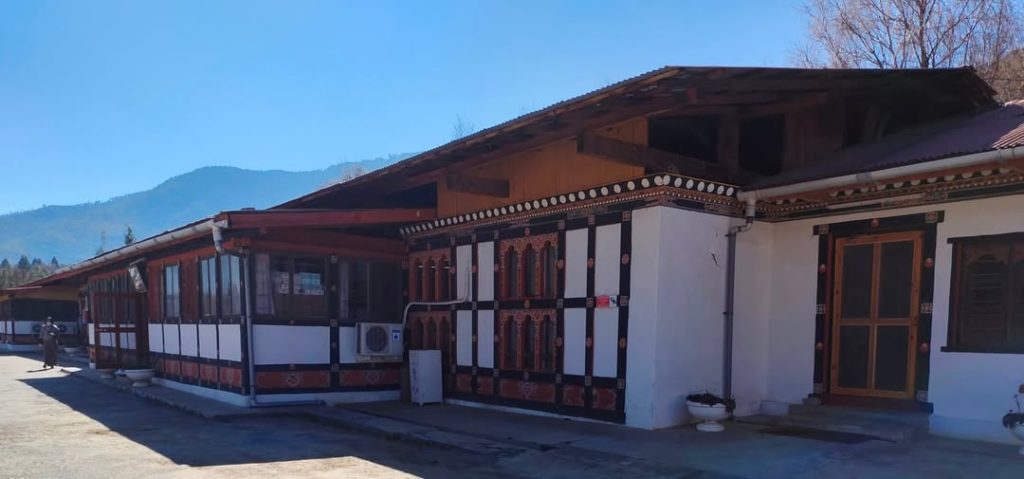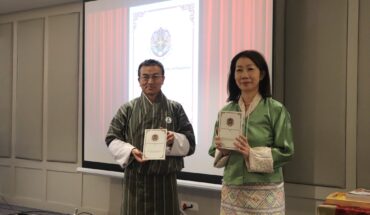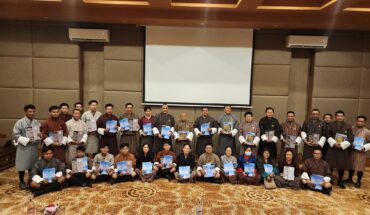
KINZANG DORJI TSHERING | Thimphu
Bhutan’s civil service is facing one of its toughest human resource challenges in recent memory, with more than 10,000 officials resigning since 2019, most of them voluntarily.
Annual reports of the Royal Civil Service Commission (RCSC) reveal that many of those leaving are mid-career professionals — individuals with between 15 to 20 years of service — who carry years of expertise and institutional knowledge.
The departures have raised alarm about the long-term stability of the civil service, as the loss of skilled workers threaten service delivery in critical sectors such as education, healthcare, administration, and technical fields.
The RCSC’s reports show that a total of 10,313 civil servants left the system in the past six financial years.
Attrition reached its highest point in 2022–23, when more than 4,800 officials resigned, including 3,413 voluntary departures. This meant that over 10 percent of the civil service workforce exited in a single year.
Among the departures, 1,140 were mid-career civil servants with 15 to 20 years of experience. They represented a crucial layer of the workforce — skilled professionals who had not yet reached retirement but were at the peak of their careers.
The trend was particularly noticeable among teachers, architects, engineers, and agriculture and forestry professionals.
Over 370 teachers resigned during the five-year period, followed by 158 from agriculture and forestry, 111 from architecture and engineering, and 36 health professionals. For a small bureaucracy like a combination of economic pressures, career development opportunities abroad, and changes in human resource management policies appear to be the main drivers.
Rising living costs have made it difficult for some professionals to sustain themselves on government salaries, while better-paying opportunities in the private sector and overseas markets have become increasingly attractive.
The introduction of new performance management systems, while intended to improve accountability and efficiency, has also been cited as a source of frustration by some mid-career officials.
Some feel their contributions are not always recognized, especially in specialized technical roles. The overall result is that many civil servants, despite their loyalty and years of service, feel compelled to leave before reaching the superannuation age.
Recognizing the challenge, the RCSC has introduced several measures aimed at slowing attrition.
These include raising the superannuation age, revising pension rules to extend lump- sum eligibility from 20 to 23 years of service, developing a new Manpower Management Framework to bring more flexibility into recruitment and retention, and rehiring experienced staff on contract.
While these initiatives have had some effect in moderating the trend, the challenge remains significant. Attrition has slowed compared to its peak in 2022–23, but the outflow of experienced civil servants continues to worry both policymakers and the public.
Behind the statistics are personal decisions shaped by financial, professional, and personal considerations.
For Chodup, who served in the Department of Information Technology under Gov Tech Agency for 17 years, the decision to resign came after years of balancing service with the realities of rising living expenses.
“After nearly two decades in IT, I felt it was time to explore other opportunities that would better support my family’s needs,” he said.
“The civil service gave me a strong foundation, but I hoped for clearer career pathways and more recognition for the work we do in technical fields.”
He added that many of his colleagues in similar positions face the same dilemma. “Better career development opportunities and incentives for mid-career professionals would make a big difference. Most of us want to serve longer, but we also look for reassurance that our contributions are valued.”
For Sonam Tshomo, who worked as Administrative Officer in a govt agency for 16 years, the decision to leave was equally difficult. She pointed to the institutional gaps created when experienced officers resign early.
“In administration, mid-career professionals often serve as the bridge between policy and implementation. When many of us leave, it creates a gap in guidance for younger colleagues and reduces the stability of institutions,” she explained.
Her advice to younger civil servants is both hopeful and pragmatic. “Enter with passion, but also plan for your future. The civil service offers many opportunities, and if ongoing reforms strengthen the system, staying longer will be even more rewarding.”
The ripple effects of such resignations are being felt across sectors. With more than 370 teachers resigning in the past five years, schools face shortages of experienced educators.
Younger teachers are stepping in, but the loss of seasoned professionals affects mentoring and continuity in classrooms.
In healthcare, although fewer in number, the departure of health professionals has a visible impact, especially in rural areas where finding replacements is difficult.
The RCSC’s task is now twofold: retaining experienced professionals while also creating space for young talent.
The testimonies of Chodup and Sonam Tshomo highlight the human side of this institutional challenge.
Both expressed pride in their years of service, but also a recognition that reforms must go further to keep professionals motivated to stay.





